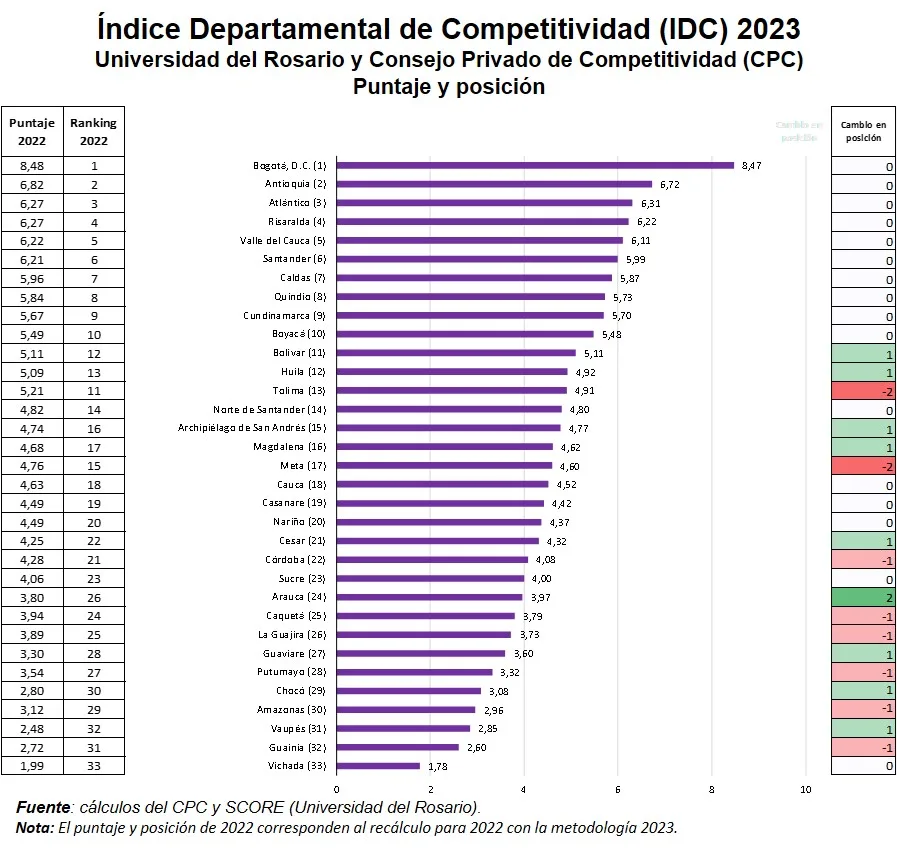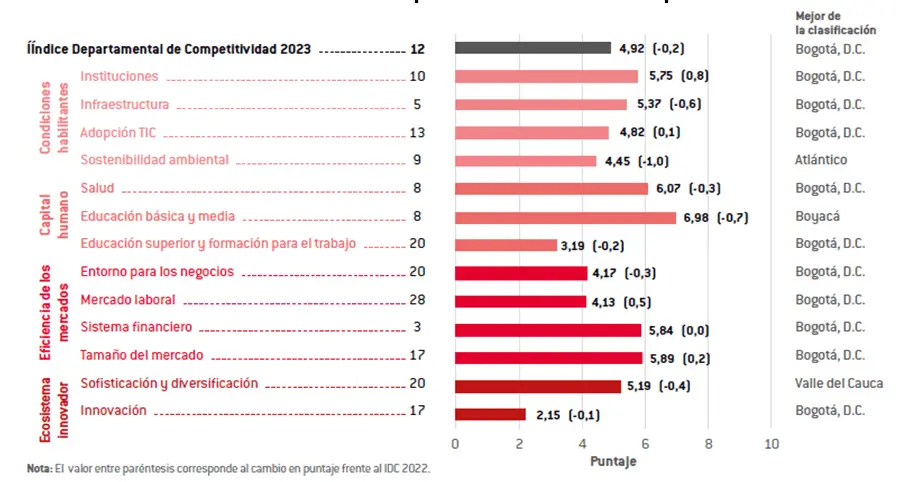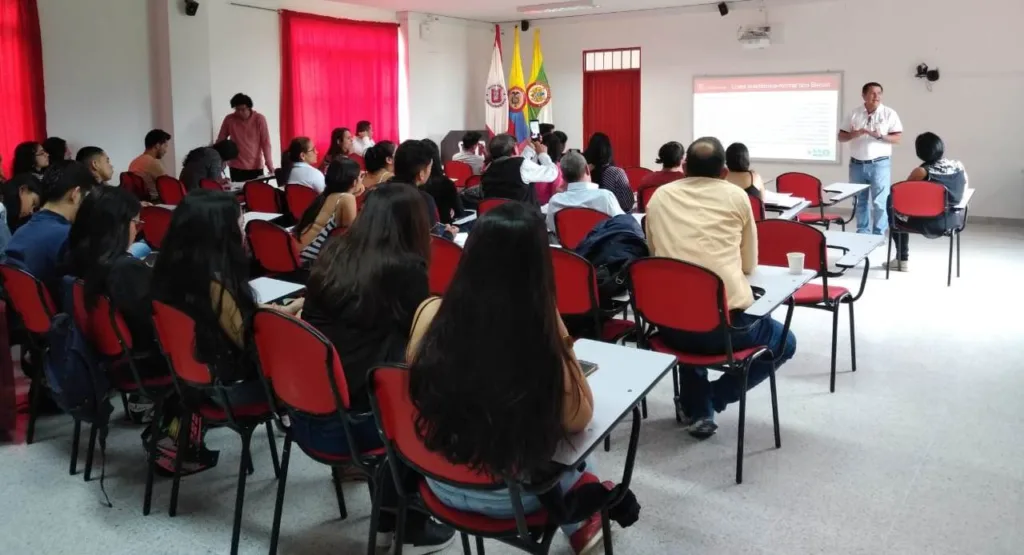The department was ranked 12th among the 32 departments in the country, standing out in basic and secondary education, as well as in the financial system, however, it fell short in innovation. Bogotá, Antioquia and Atlántico, occupied the first places in the national ranking.
Diary of Huila, economy
By: Gloria Camargo
With great expectation, the presentation of the 2023 Departmental Competitiveness Index was recently made, an input that evaluates the competitive state of local and departmental regions in Colombia. This measurement, which has been carried out since 2013, jointly between the Universidad del Rosario and the Private Competitiveness Council (CPC).
However, this year’s report is especially relevant, as it includes the results and management of outgoing regional governments, thus offering a solid foundation for incoming administrations.
Furthermore, it is a valuable resource that will allow new leaders to make informed decisions and build effective strategies to strengthen competitiveness in their respective jurisdictions.
Regarding the issue, Ana Fernanda Maiguashca, president of the Private Competitiveness Council, highlighted the importance of this index as a tool to support the efforts that are carried out in all regions of the country.
Maiguashca affirmed that “it is about accompanying the efforts made from all the regions of Colombia to build higher levels of competitiveness, to close gaps and to continue on the unavoidable path of progress. It is really the effort to improve people’s living conditions.”
It should be remembered that competitiveness is a key factor for the economic and social development of any territory. It refers to the ability of a region to generate favorable conditions that attract investment, promote business growth, generate quality employment and improve the quality of life of its inhabitants.
The Departmental Competitiveness Index takes into account various indicators, such as the economic environment, infrastructure, education, health, innovation, sustainability and institutionality, among others. Each of these components plays a fundamental role in building a competitive and dynamic environment that stimulates growth and progress.
Huila Performance
The department of Huila managed to stand out in the educational and financial field, obtaining an outstanding performance according to a recent report. According to the Competitiveness Performance Index (IDC), the department obtained a score of 4.92 out of 10, which allowed it to be located in twelfth position in the general ranking.
One of the pillars in which the department stood out was basic and secondary education, obtaining a rating of 6.98 out of 10. In addition, in the financial system pillar, the department ranked third nationally.
In the field of basic and secondary education, the department obtained a score higher than 8.2 out of 10 in key indicators such as net coverage in primary and secondary education. This means that greater access to education is being achieved in the department, which is essential for the development of the region.
In addition, the results in the Saber 11 tests in official schools were also outstanding, which demonstrates the level of preparation of the students in Huila. Likewise, it is important to mention that the academic training of teachers from official schools was positively valued, especially those who have postgraduate degrees.

Regarding the financial system, Huila stood out for its good coverage of financial establishments, which provides the inhabitants of the department with greater access to banking and credit services. Likewise, financial inclusion in the region is recognized, which implies that policies and programs are being implemented that allow a greater number of people to have access to basic financial services.
to strengthen
The department of Huila is facing major challenges in terms of higher education, job training and innovation, according to a recent report. In these areas, the region obtained worrisome scores of 3.19 and 2.15, respectively.
Regarding higher education and job training, Huila faces significant challenges in key variables. The number of postgraduate graduates, the gross coverage in technical and technological training, the quality of higher education teachers and the proportion of students enrolled in certified technical and technological education institutions, and job training are aspects in which Huila obtained scores below 2.7 out of 10.
In the field of innovation, Huila occupies the last position at the national level in the indicator of indexed journals in Publindex. This reveals a lack of development in the region’s scientific and academic production.
In addition, in terms of investment in science, technology and innovation (ACTI) activities, it is ranked number 20, which indicates that there is still a long way to go in this regard.
Despite these challenges, the department of Huila registers progress in the institutions pillar, improving by 0.8 points compared to the results of 2022. This shows that efforts are being made to strengthen institutions and their capacity to provide services quality to the community.

However, environmental sustainability is an area in which Huila experienced its biggest drop, with a decrease of 1.0 point. This is mainly due to the drop in the indicator of investment in environmental services.
In summary, Huila faces important challenges in terms of higher education, job training and innovation. Although progress has been made in the institutions pillar, environmental sustainability requires special attention. It is essential that investments are made and policies are implemented to improve these aspects and promote comprehensive development in the department.
Finally, Maiguashca expressed that “we believe that the IDC 2023 is a crucial input for the political situation. From the Universidad del Rosario and the Private Competitiveness Council, we make this exercise available to citizens, the private sector, academia, and local governments, in order to enrich the debate on the country’s major issues from a subnational approach of competitiveness”.

